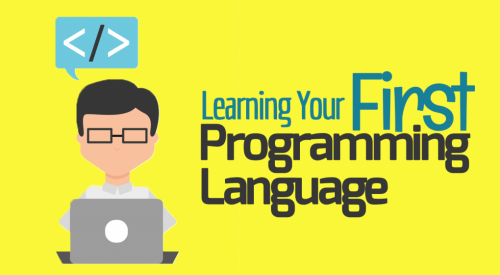Learning Programming Language
A student wrote to me: “You wrote in your blog that all students, regardless of what they study, need to know at least one programming languages. I study business administration but want to learn about computer programming. How do I start and what language should I learn? Please advise.”
Answer: Today, knowing a programming language is important, especially in the business industry. Soon many business works will be automated using technologies to increase its efficiency. To get a job in this industry in the near future, you need to have a programming skill. You can take programming courses at your university or online. Over the past few years, there are many online courses teaching programming that you can choose. However, to start you will need to read more about the business industry needs then find the online courses and tutorials that fit that needs. Learning a programming language takes time so do not get frustrated if you do not do well in the first few weeks.
Since there are many programming languages, you need to select the language that is relating to what kind of job you want to do in the future because for each type of job, there are certain programming languages associated with them. For example, if you want to work in finance, or stock market exchange sectors, you need to learn Python or Java because many Data analysis and business intelligence are using these languages. If you work in banking or online business, you may need to learn Java and JavaScript etc. It is important for you to make a studying plan and follow it to develop your skills. You need to decide which time you will dedicate to studying the concept and how much time you will write code. I recommend that you study every day for at least one hour or more (i.e. Reading articles, learning from MOOCs, write code etc.) ) Even if you are still studying other subjects in school, you still need to find the time to learn to write code It is important to come up with a plan and stick to it. (I.e. Stay focus on writing code, start with something easy to make sure it works then move on. Make sure nothing can interrupt you while you write code. That means putting your phone aside, not checking Facebook and email… etc.
In the beginning, you may feel overwhelmed or afraid. But over time, you will do fine when you see the first results. Learning to write code is always difficult in the beginning but as long as you overcome these difficulties, you will become more motivated to continue. Also, always keep in mind why you are learning it. You want to have the skills that can open more opportunities and better-paid job for your future.
Sources
- Blogs of Prof. John Vu, Carnegie Mellon University
